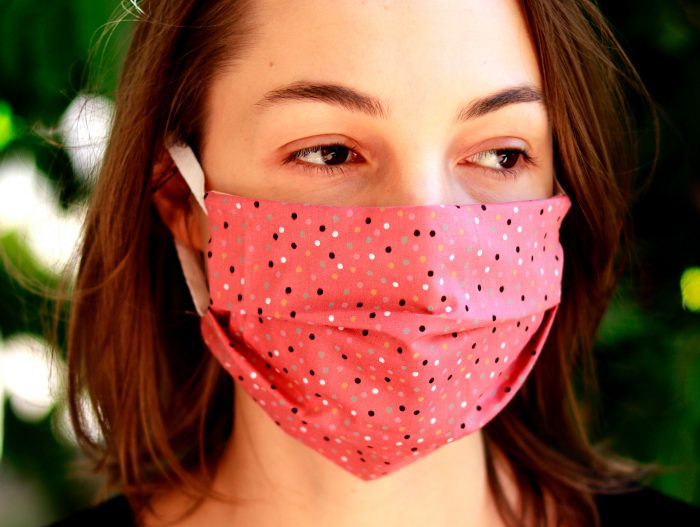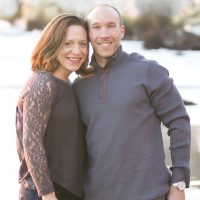Living With COVID: a Five-Part Series. (Part One)
~
*Elephant is not your doctor or hospital. Our lawyers would say “this web site is not designed to, and should not be construed to provide medical advice, professional diagnosis, opinion or treatment to you or any other individual, and is not intended as a substitute for medical or professional care and treatment. Always consult a health professional before trying out new home therapies or changing your diet.” But we can’t afford lawyers, and you knew all that. ~ Ed.
~
While some restrictions are being eased and more businesses reopening, it’s clear COVID-19 will still be part of our reality for the foreseeable future.
And while some may look forward to an efficacious drug or vaccine in the months to come, we work from the perspective of prevention—our family is not going to spend the next I-don’t-know-how-many-months fearing COVID-19 or waiting for a vaccine.
Our greatest defense against COVID-19 is our health.
In this five-part series, we will uncover what we are doing in our home with our family, and what we are discussing with our patients to ensure our immune systems stay strong.
We will answer the question:
How do we live with COVID-19 without the looming underlying fear and anxiety plaguing our everyday lives and wellness?
Ben and I work in preventative care, which works from a different paradigm than our conventional medical system. Our conventional system is great at “sick care”: taking care of patients with medications that help alleviate symptoms.
We work backward from that paradigm, hoping to prevent sickness and/or find the root cause of sickness. We view symptoms as a sign of dysfunction and we work to find the source of dysfunction to prevent surgery or other costly treatments.
The body has an innate ability to seek homeostasis, equilibrium, and when it can’t do it on its own, we give it some extra attention to eliminate the symptoms and remedy the dysfunction before it becomes problematic.
So with our preventative care paradigm in mind, here is what our family is doing every day to keep in control of our health, despite COVID-19.
Turn off the 24-hour news cycle and social media.
This is a tough one. Ben and I pride ourselves on being well-educated and informed, but the news media, whichever medium you subscribe to, excels at fostering fear and anxiety. And the stress this incites weakens our immunity.
Choose a couple of favorite, trusted resources, and turn the rest off. The 24-hour news cycle and targeted social media algorithms are keeping us in a constant state of “fight-or-flight.”
We all have stress, but how we interpret and assign meaning to that stress can make or break our bodies. Stress can show up in the form of emotional/mental, physiological (e.g. inflammation and/or disease), or environmental (e.g. chemicals in and around our bodies and food).
Our lives pre-COVID-19 likely had us regularly in a state of “fight-or-flight” too; rushing to get to the next “thing,” stuck in traffic, stresses at work, school, kids, family, relationships, poor diet choices, chemical exposures. And our bodies cannot decipher between a lion chasing us or the stress caused by our favorite team losing a high stakes game. While perspective plays an important role in how we interpret our stresses, too many people we speak with have traded their pre-COVID-19 stresses with the 24/7 news cycle.
While there may be some great reporting, we have to maintain our critical faculties while watching, listening, and reading the news, which is difficult when we get stuck in the fear and anxiety loop. Newspapers, news stations, and social media still have ad space to sell, and the greater the hook (fear), the more likely people tune-in (and businesses invest in ad space).
Stress produces the hormone cortisol, a life-sustaining adrenal hormone that is responsible for maintaining homeostasis in the body. It regulates and controls things like blood glucose levels; metabolism of fat, protein, and carbohydrates; strengthening immune response; anti-inflammatory actions, but too much cortisol can have the opposite effects: inflammation, increased blood sugar, hunger and cravings, weakened immunity, leaky gut, metabolic dysfunction, hormonal imbalances, depression, anxiety, insomnia, mood imbalances, cardiovascular disease.
This chronic state of fear and stress has our sympathetic nervous system, the system responsible for our innate “fight-or-flight” response, working overtime with the fear that we will contract the virus. But it’s important we keep things in perspective. For example, there are approximately 40 million Californians, and while the number of those infected by COVID-19 keeps increasing, we also have to keep in mind that California just started ramping up testing, when previously testing wasn’t as widely available.
Approximately 5,800 Californians have died from COVID-19 (as of June 26, 2020: roughly 78 percent of the dead were 65 or older. At least 2,832 were living at a nursing home)—that’s less than 0.3 percent, and yes, every life is precious and yes, we should take every precaution, but keeping things in perspective is important for us to keep healthy and sane.
COVID-19 is most devastating to those with preexisting conditions and immunosuppressed. So if you fall into these categories, you too can improve your health. Our greatest defense is our health.
And if we’re going to be living with this virus for the next 18+ months, then we have to find ways to cohabitate with it that don’t have us in a constant state of “fight-or-flight.” This stress response weakens our immune defenses.
So take a deep breath.
And we’ll talk more next week about how powerful that breath is in boosting your immunity too.
In Good Health,
Dr. Ben and Allyson









Read 2 comments and reply